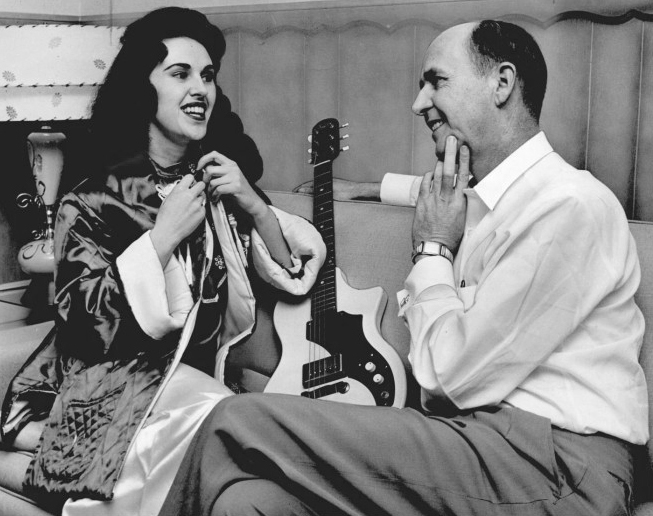
The Encyclopedia of Oklahoma History and Culture
JACKSON, WANDA LAVONNE (1937– ).
As the only child of Tom and Nellie Jackson, country music star Wanda Lavonne Jackson was born on October 20, 1937, in Maud, Oklahoma. In 1942 her father moved the family to Los Angeles. In 1949 they returned to Oklahoma, and while a student at Capitol Hill High School, Wanda performed over radio station KLPR.
Having heard Jackson's KLPR program, Hank Thompson invited her to perform at the Trianon Ballroom with the Brazos Valley Boys. Soon thereafter, she cut a demo tape at Thompson's studio and was signed by Decca Records in 1954. She recorded fifteen country tracks for Decca, one of which, "You Can't Have My Love," a duet with Billy Gray, made the country Top Ten. This success prompted a guest performance on the Grand Ole Opry. In 1955 she joined the Ozark Jubilee, an ABC television network show hosted by the venerable Red Foley.
Another opportunity came when Jackson met Elvis Presley on tour in 1955–56, and he advised her to change her style to the new rock and roll. With the help of Jim Halsey, she signed a contract with Capitol Records and in 1958 recorded "Fujiyama Mama." Not a huge success in the United States, it became a hit in Japan. This resulted in a sensational tour of Japan and motivated Jackson and Halsey to hire her own band. Previously known as Bobby Poe and the Poe Kats, it was an integrated band with Big Al Downing, a fellow Oklahoman, as pianist.
In early 1960 Jackson began receiving overtures from Las Vegas where country music had been introduced by Hank Thompson and Bob Wills. Another break came in 1960 when a Des Moines, Iowa, disc jockey began using "Let's Have a Party," which she had recorded two years earlier, as his theme song. Capitol issued the song as a single, and it became a hit on the rock and roll charts. From that time until the early 1970s Wanda Jackson was a favorite on the Las Vegas nightclub scene.
Overall, she charted thirty country hits from 1954 to 1974 and was twice nominated for a Grammy Award for Best Country Vocal Performance by a Female. Often overlooked but very significant in music history is the influence of Wanda Jackson's music on an international scale. Jackson was inducted into the Oklahoma Music Hall of Fame in 2000 and the Rock and Roll Hall of Fame in 2009.
See Also
COLLINS KIDS, COUNTRY MUSIC, OLLIE IMOGENE SHEPARD, HENRY WILLIAM THOMPSON, WESTERN SWING, JAMES ROBERT WILLS, JOHNNIE LEE WILLS






